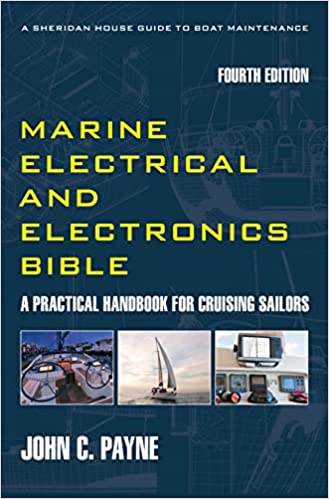About Boat Radios
Boat radios have been at the center of technology advances. They have been as significant as all other changes for commercial and pleasure boating. As usual the big developments in electronics and software have transferred into the small boat market from commercial and military applications. This communications revolution has affected the largest merchant ships to the smallest fishing boats.
The days of a simple VHF radio or a 27 MHz citizen band radio are almost gone. For larger ships, boats and yachts MF/HF shore stations have largely ceased operations in most main western countries, along with Morse. The Global Maritime Distress and Safety System (GMDSS) is now fully operational with far reaching ramifications to all boat owners. Given its capability to advance safety afloat, you would be nuts not to have a GMDSS DSC VHF radio when boating offshore. Like many I have a fixed set and handheld VHF DSC in the cockpit with me at all times.
All About GMDSS and Boat Radios
GMDSS has transformed the maritime communications area. Many smaller boats and cruising yachts are still not plugged into the international standard distress system. There is much to know about GMDSS Communication I click the link and learn. These radio types continue to incorporate more functionality as well as easier to use and more reliable. GMDSS has changed a lot of things with boat radios, with DSC VHF radios now almost standard on most smaller boats, and cell phones getting used is widespread if not controversial when used.
All About Boat VHF Radios
You can buy a copy of the Marine Electrical and Electronics Bible 4th Edition here. VHF DSC radio is by the far most common boat radio
in use, for inshore and offshore communications. It is a no sail without one device. There issues about Boat VHF Radio licensing. Then
there is VHF marine radio theory. Then we must consider VHF radio
operation. Finally there are all the installation and troubleshooting issues
that are centered around the VHF antenna. With GMDSS we then have to
understand how the DSC radio works and how to operate it correctly. You will learn all about that in The Marine Electrical and Electronics Bible 4th Edition and also when you do your license course. Always know what VHF radio channels you should be using. Caution. A mobile phone is
no substitute for boat radios, make sure you have both to be safe out on the water.
All About Boat HF/SSB Radios
GMDSS has virtually eliminated and made redundant all the MF/HF voice communications with coast stations that used to exist around the world. There is a place for MF/HF radio when ocean voyaging and people still install DSC units on board. My own boat came with a set but really not much to listen to, minimal traffic and upgrading to a DSC radio would be more sensible. I will differentiate here between Amateur HAM radio and Marine MF/HF radio. MF/HF marine radio is part of the GMDSS system so when connected to GPS they also have available DSC distress calling functions. It also allows you to hook into maritime nets, email, weather fax, Navtex and so on.
All About Boat Satellite Communications
Marine Satcom communications are very much part of the GMDSS system. For many who have the budget this is used for data, voice communications rather than HF/SSB radio. INMARSAT is synonymous with maritime satellite communications. If you haven't heard about Starlink then you probably have been in a coma. The Marine Electrical and Electronics Bible 4th Edition has a lot of information on all the various satellite systems that are being launched. Starlink is the current leader, but competitors are busy launching. Like many I have Starlink on board. Summed up it is absolutely fabulous. Great for streaming entertainment, great for downloading my Raymarine software updates, great for internet searches and obviously emails.
All About Boat Ham Radio
Ham radio has become a logical choice for long range communications on yachts now that GMDSS has virtually eliminated MF/HF voice communications with coast stations. For more on HAM radio click on the link for all useful maritime mobile frequencies and HAM net information you will ever need to go cruising.
All About Boat Cell Phones
The smart phone has also became a major feature of boats. For around 99% of boaters who day trip, weekend boat, coastal cruise, the smart phone is used frequently. There so many great Boating Apps to use. I will say it now and again later, cell phones are not a substitute for boat radios with severe limitations.
About Radio Frequency Interference
Some of the old problems still exist and so this should help you solve some of the issues as they occur on your boat.
PART 1 of this 3 Part Series on RFI Interference problem solving on your VHF and SSB radios along with noise on your GPS and marine electronics. Understand what causes it and how to eliminate it.
PART 2 of this 3 Part Series on problem solving HF Radio Interference. All you need to know about interference, noise and RFI on your marine electronics and communications systems.
PART 3 of this 3 Part Series on RFI Suppression and Interference problem solving on your GPS, marine electronics and SSB radios. Get rid of the noise.
Continue exploring fishing and boats for useful information and answers to common questions.
